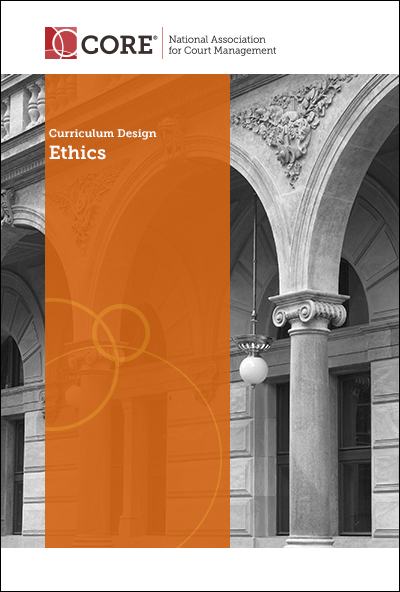Curriculum
Ethics
A career with the judicial branch is a public service and a public trust, which court professionals strive to sustain. Citizens determine the value of their courts, and it is up to court leaders to demonstrate that value to the citizens.
Ethics permeate all other components of The Core. Ethics is the bedrock that supports the fundamental purposes and responsibilities of courts as a co-equal branch of government. It is the framework within which court leaders demonstrate leadership, project plans, envision the future, make known the courts’ message to the community, manage caseflow and workflow, and hold each other and the courts accountable as part of the fabric of society. Court leaders must be ethical in order to preserve the public’s trust and confidence in the judiciary and in the value of the rule of law.
The following learning objectives are designed for a comprehensive session that will require a minimum of a two and one-half day workshop. Faculty that are developing a more basic or shorter course may simplify or reduce the number of learning objectives.
As a result of this education, participants will be able to:
- Identify differences in ethics codes, their own court’s code and other codes, model codes and some from specific states and courts;
- Describe and assess the effectiveness of their own court’s[1] ethics code;
- Apply ethics codes to a variety of topical ethical situations and issues;
- Evaluate the degree of knowledge and commitment staff and court officials have toward their court’s ethics code;
- Determine the organizational structure needed to develop and implement a code of conduct.
[1] This design presumes that references to “court” also implies state administrative offices.

